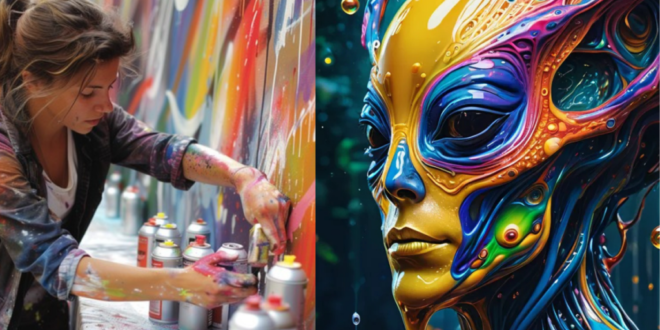Developers prompt the EU to decide on AI’s intrusive effect on art and creativity.|Debt: Nina Chef
In the most recent step versus expert system (AI) “loaning” a little bit also freely, designers throughout Europe are requiring that the EU follow up on its AI Act.
This regulations, created to deal with the influence of AI throughout sectors, consists of a structure to secure imaginative and copyright. However designers say that the present enforcement could be also weak to take care of the superhuman rate at which AI modern technology is progressing.
Why creatives are deeply worried concerning AI
AI is no more simply making playlists; it’s creating its very own art, songs, and also supposed literary works. As AI establishes and improves abilities that were as soon as distinctively human, designers currently fret that the originality and soul of their artform might be in jeopardy. Musicians, artists, and authors are speaking out, prompting the EU to shield their legal rights, so their special payments aren’t engulfed by AI’s electronic paintbrush or fictional key-board.
The AI Act, theoretically, is Europe’s solution to these problems, intending to apply safeguards that shield copyright from being changed by AI systems right into something unrecognisable, anonymous, and unhuman. However designers say that without a solid press from policymakers, these securities might wind up as little bit greater than electronic ink on digital paper.
What remains in the AI Act?
At its core, the AI Act means to manage risky AI applications throughout sectors. It’s suggested to develop limits for exactly how AI can be utilized, making sure modern technology offers culture’s benefits and areas existing legal rights. For designers, the Act’s application implies possible control over exactly how AI utilizes their job– something specifically vital in an age when AI’s developments are coming to be harder to identify from human-made jobs.
Nonetheless, without concrete application information and, extra notably, enforcement steps, designers are afraid the AI Act will certainly do not have the teeth required to shield their copyright and their imaginative market all at once. This problem has actually motivated an open letter from thousands of designers, getting in touch with EU leaders to tip up.
What’s following? More powerful securities, or status?
Whether the EU’s AI Act will certainly end up being the safety citadel designers require continues to be to be seen. Still, their cumulative require purposeful enforcement elevates a vital inquiry: who ultimately controls creativity in the age of AI? With even more voices signing up with the dispute, the stress gets on EU policymakers to develop a governing structure that identifies and values human resourcefulness and the human spirit– and maintains AI advancement from running away with the art globe.
 Costa News Spain Breaking News | English News in Spain.
Costa News Spain Breaking News | English News in Spain.





